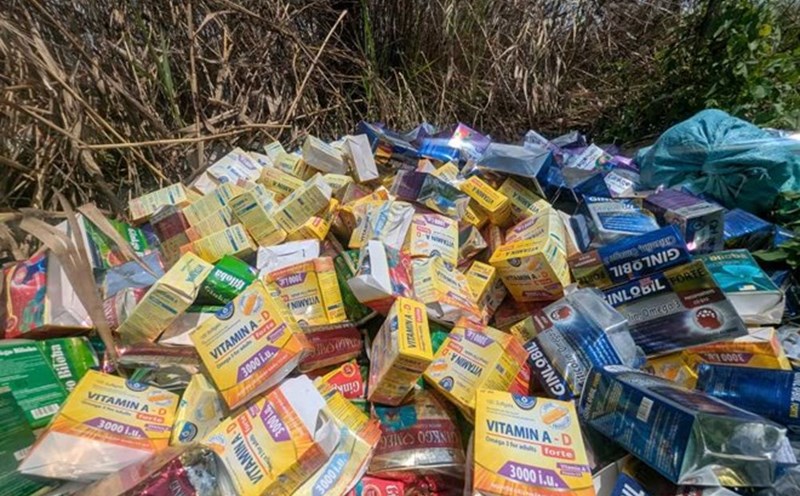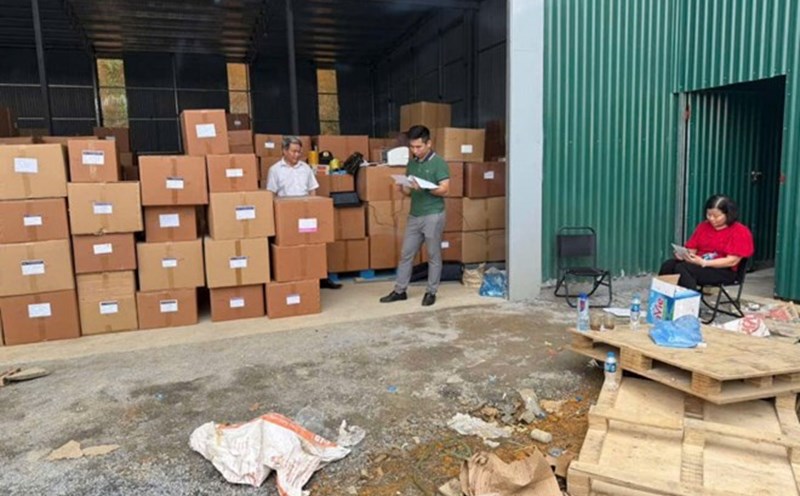Letting go of the functional food market
According to the Vietnam authorities, about 80% of advertisements about treatment support on social networks and e-commerce platforms are actually advertisements disguised as functional foods.
The Food Safety Department (Ministry of Health) said that in 2024, it inspected 66 establishments and fined 21 establishments with a total amount of more than 12.2 billion VND, mainly due to false advertising, incorrect labeling, and illegal product announcement. In the first half of 2025, a series of fake functional food production cases were exposed, such as the fake milk production line at Rance Pharma Company and Hacofood Group (Hanoi). Since 2021, the group of subjects has established a company to produce 573 fake milk brands, targeting premature babies, pregnant women and patients. The authorities seized more than 26,000 boxes of milk, of which 12 products had nutritional content below 70% announced.
These cases show major loopholes in supervision and post-inspection. Currently, functional foods are divided into 4 groups, but only the group of health protection foods must control quality indicators, the rest mainly test safety indicators. Supplementary food products after self-declaration are immediately produced and sold and advertised freely without the need for an agency to confirm the content.
Dr. Tran Viet Nga - Director of the Department of Food Safety (Ministry of Health) - admitted: Decree 15/2018/ND-CP allows businesses to self-declare products without needing a management agency to appraise documents. Although this regulation facilitates businesses, it is also taken advantage of by some organizations to "circumvent the law", produce and trade poor quality products, affecting consumers.
"In addition to the fact that businesses intentionally violate, we face difficulties because the number of self-declared products is too large, while the post-inspection force is very thin. Post-inspection activities include checking records and production facilities, taking samples for testing, but the cost is high, so many localities are facing difficulties" - Ms. Nga said.
Currently, the Ministry of Health is seeking opinions on a draft decree to replace Decree 15, adding many new regulations to close loopholes, tighten the management of functional foods and dietary supplements.
Proposal to tighten management of functional food quality
Pharmaceutical Dr. Nguyen Xuan Hoang - Vice President of the Vietnam Functional Food Association - said that in addition to current regulations on safety indicators such as toxins, banned substances, microorganisms, heavy metals, it is necessary to soon issue a circular regulating product quality standards.
According to Mr. Hoang, there is currently no mandatory requirement for the announcement of ingredient quantity for functional foods. Tests for herbs are mostly at a determinative level, and specific results cannot be determined. This leads to product advertising and advertising being easily distorted or fraudulent, affecting consumer rights.
"It is necessary for businesses to announce quality standards along with testing methods to distinguish between real and fake units. Even if it is self-declared, businesses must submit a testing method so that the management agency has a basis for periodic inspection and detection of violations" - Mr. Hoang emphasized.
Dr. Tran Viet Nga added that the draft Decree replaces Decree 15/2018/ND-CP to increase food safety control, stipulating that the agency receiving the dossier that self-declared the product will have to give opinions, post information, make a post-inspection plan and take samples for quality monitoring. This regulation helps prevent businesses from self-classifying, advertising incorrectly and exaggerating the uses of products.
The group of additional foods will be required to register the product declaration. Health protection products, medical nutrition, special diet foods and nutrition for children under 36 months old must also have a published dossier from the research stage to before circulation. Enterprises must announce quality indicators, instead of only stating safety indicators.
If there is a violation, the authorities will revoke the certificate, the announcement documents, the advertising confirmation documents and temporarily suspend receiving new documents. Production facilities are required to have a food safety management system certificate such as GMP, HACCP, ISO 22000 or equivalent. The Ministry of Science and Technology will supervise certification organizations.
Post-inspection activities are specifically regulated on plans, frequency, inspection content and data connection on the National Public Service Portal for timely monitoring and recovery.











